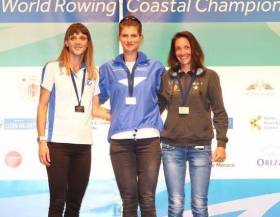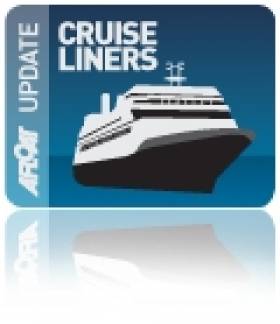Displaying items by tag: Monaco
World Gold Medallist Dukarska is Rower of the Month
#Rowing: Monika Dukarska is the Afloat Rower of the Month for October. The Killorglin woman became the world champion in the solo (single) at the Fisa World Coastal Rowing Championships in Monaco. She won the final by 26 seconds, leaving the Olympic medallist from London 2012, Alexandra Tsiavou of Greece, in her wake. Tsiavou had won her own battle with Edwig Alfred, the champion of France.
Dukarska, who is 26, won this title first in 2009 while still a teenager.
Rower of the Month awards: The judging panel is made up of Liam Gorman, rowing correspondent of The Irish Times, and David O'Brien, editor of Afloat magazine. Monthly awards for achievements during the year will appear on afloat.ie and the overall national award will be presented to the person or crew who, in the judges' opinion, achieved the most notable results in, or made the most significant contribution to rowing during 2016. Keep a monthly eye on progress and watch our 2016 champions list grow.
Dukarska is World Coastal Rowing Champion
#Rowing: Monika Dukarska took her second World title today. The Killorglin oarswoman won the women’s solo final at the World Coastal Rowing Championships in Monaco. She had over 26 seconds to spare over Greek international Alexandra Tsiavou (31) who finished second. Tsiavou took bronze in the lightweight double sculls at the Olympic Games in 2012.
Dukarska won this title for the first time in 2009 when the Championships were held in Britain. Earlier this year she took bronze at the World University Championships in the women's single sculls.
World Coastal Rowing Championships, Monaco, Day Two
(Irish interest; selected results)
Men
Quadruple – B Final: 10 Galley Flash 18:09.04. Solo – B Final: 7 B Hooper 20:32.86; 18 D Hussey 23:11.12.
Women
Solo – A Final: 1 M Dukarska 30:57.06, 2 A Tsiavou 31:23.35, 3 O Alfred 31:29.00. B Final: 3 J Lee 22:52.54, 4 S Healy 22:53.30.
A Former Royal is Set to Return
At 6,000 tonnes, the luxuriously appointed expedition cruiseship caters for only 132 guests. She is designed to explore remote waters and with an ice-strenghtened hull she can provide destinations that include the polar ice-caps. Shore-based excursions from the ship are taken by a fleet of Zodiac-craft to transport passengers to isolated locations.
Onboard the Bahama-flagged vessel, passenger can browse in the boutique, sip a drink in the internet café, enjoy a full-service spa, take a beauty treatment in the salon, get fit in the gym or take it easy in the sauna. Plus there's live-evening entertainment and not forgetting the two top-deck whirlpools.
For a vessel of this size her facilities are comparatively impressive to the large cruise giant's such as the Grand Princess. She became the first cruiseship to measure over 100,000 tonnes when she made an inaugural call to the capital in 2004.
Nearly 300m long the vessel is the equivalent in length to three football pitches. The ship may not actually feature a playing pitch though she does have a nine-hole putting golf course!































































